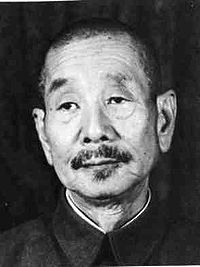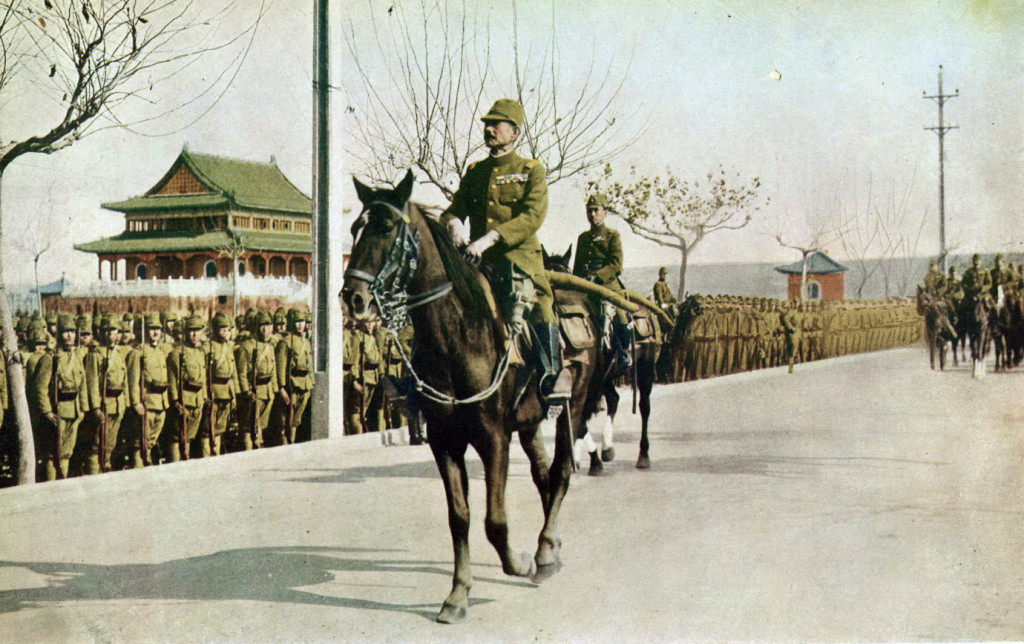Inside the Mind of a War Criminal
- By Peter Harmsen
- 25 October, 2013
- 25 Comments
 The Japanese commander of military operations in the Shanghai area in late 1937 was the 59-year-old General Matsui Iwane. Today he is mainly remembered as a war criminal, because he was executed after the war for his role in the infamous Rape of Nanjing. . “He did nothing, or nothing effective to abate these horrors,” the International Military Tribunal of the Far East said in its verdict before sending him to the gallows.
The Japanese commander of military operations in the Shanghai area in late 1937 was the 59-year-old General Matsui Iwane. Today he is mainly remembered as a war criminal, because he was executed after the war for his role in the infamous Rape of Nanjing. . “He did nothing, or nothing effective to abate these horrors,” the International Military Tribunal of the Far East said in its verdict before sending him to the gallows.
What is it like to be a war criminal? What goes on inside the mind of a person who uses awe-inspiring military might to inflict pain and death on defenseless civilians? In the case of Matsui, it’s actually possible to approach an answer to that question. This is because the general kept a detailed diary during his time in China in 1937 and 1938.
It’s a man full of paradoxes that emerges from the pages of the diary. Having spent almost his entire adult life in the armed forces and therefore thoroughly steeped in its stern values, he nevertheless displayed a tender side. In his diary entries, he showed genuine concern for the common Japanese soldier – the same young men that he would also, with little hesitation, send to their deaths in frontal attacks on Chinese positions.
Even more paradoxically, especially from a modern point of view, was his love of poetry. This was a man who relished the challenge of composing poems in the immensely difficult classical style, even when under enemy fire. After weeks of incessant fighting around Shanghai, Matsui found himself one morning admiring the view of flowers caught in the rays of the rising sun, and immediately penned this poem:
South of the Yangtze, a magnificent view:
Coquettish flowers come back to life.
The righteous knight has gained victory,
And is greeted by the bloom of the oleander.

Matsui after the conquest of Nanjing
Matsui’s view of China and of Asia was even more paradoxical. In the words of the book Shanghai 1937: Stalingrad on the Yangtze, “he knew China well and had been an acquaintance of Sun Yat-sen’s, the revolutionary who had been the driving force in establishing the Republic of China in 1912 after the fall of the empire… Matsui mixed strident Japanese nationalism with a pan-Asian outlook, thus embodying much of the contradiction that characterized imperial Japan and its views about its role in Asia. In 1935, he had helped establish Dai Ajia Kyokai, or Greater Asia Society, an organization working to overcome divisions among the peoples of the continent and strengthen them to better resist western imperialism.”
He had toured China in the mid-1930s and had repeatedly met Chiang Kai-shek, the nationalist leader of the Chinese republic. How could this politically savvy man, who evidently had not particular hatred of China, turn into a savage war criminal, contributing to one of the worst atrocities ever committed on Chinese soil? Perhaps disappointment over Chiang Kai-shek’s decision to side with the Chinese communists against Japan was part of the explanation.
“A staunch anti-communist,” according to Shanghai 1937, “the Japanese general had been gravely dismayed by Chiang’s decision to make peace with his Red rivals in order to coordinate and concentrate their efforts in a bid to defeat the Japanese threat. Matsui channeled his disaffection with Chiang into an extremely proactive approach to the command of troops in the field. He exhibited an aggressive bent from the moment he got his assignment, before he had even set foot in Shanghai.”

 Copyright © 2025
Copyright © 2025
Leave a Reply